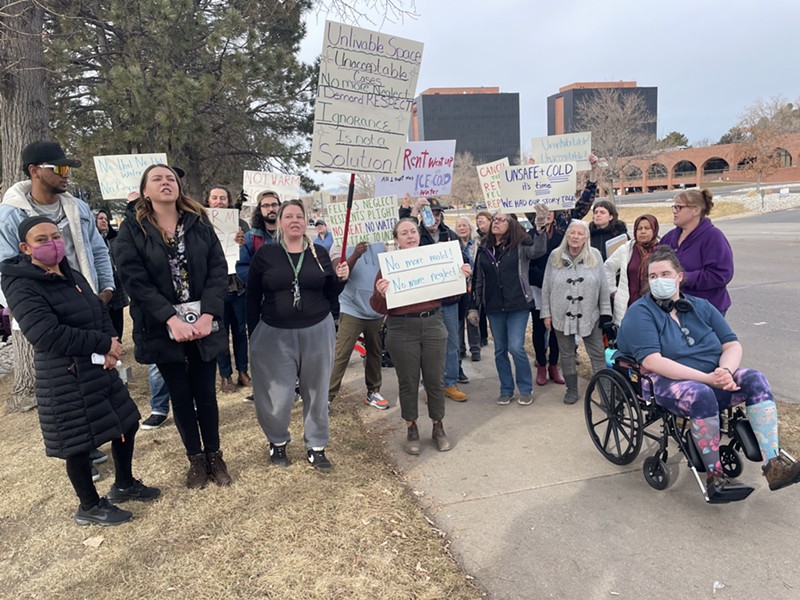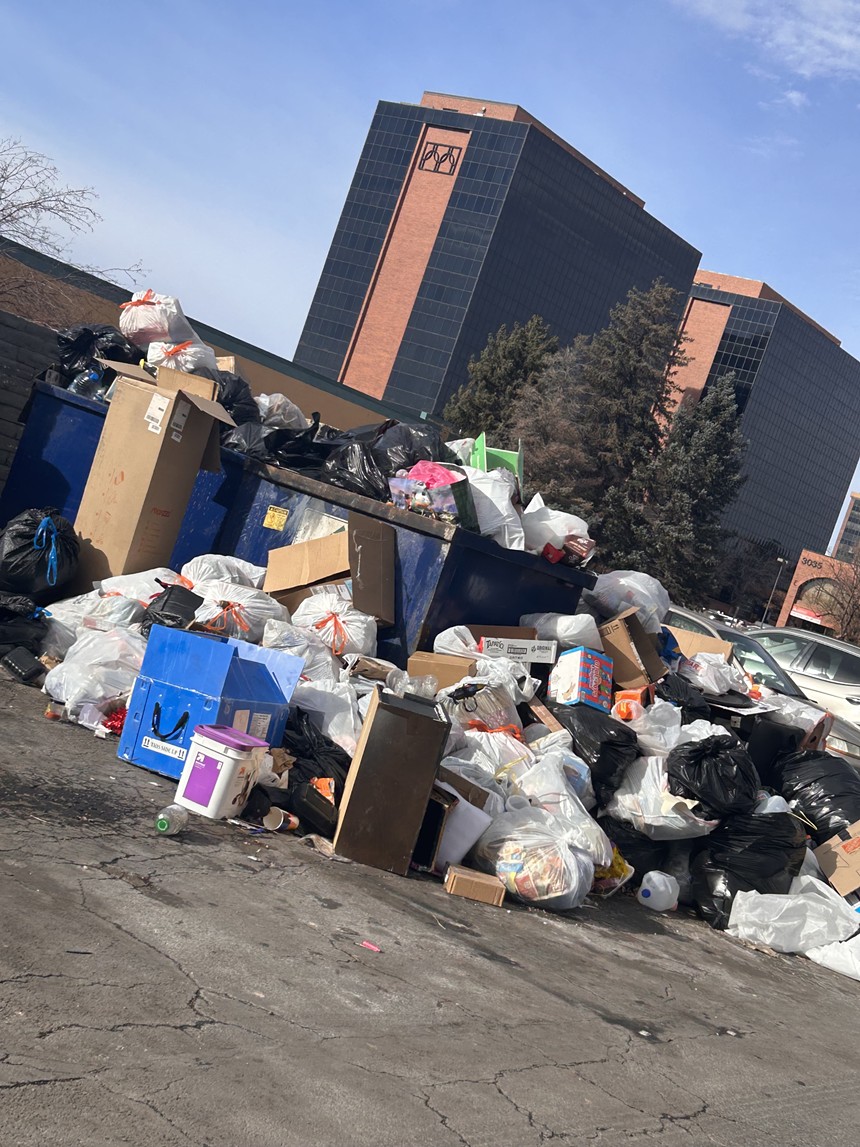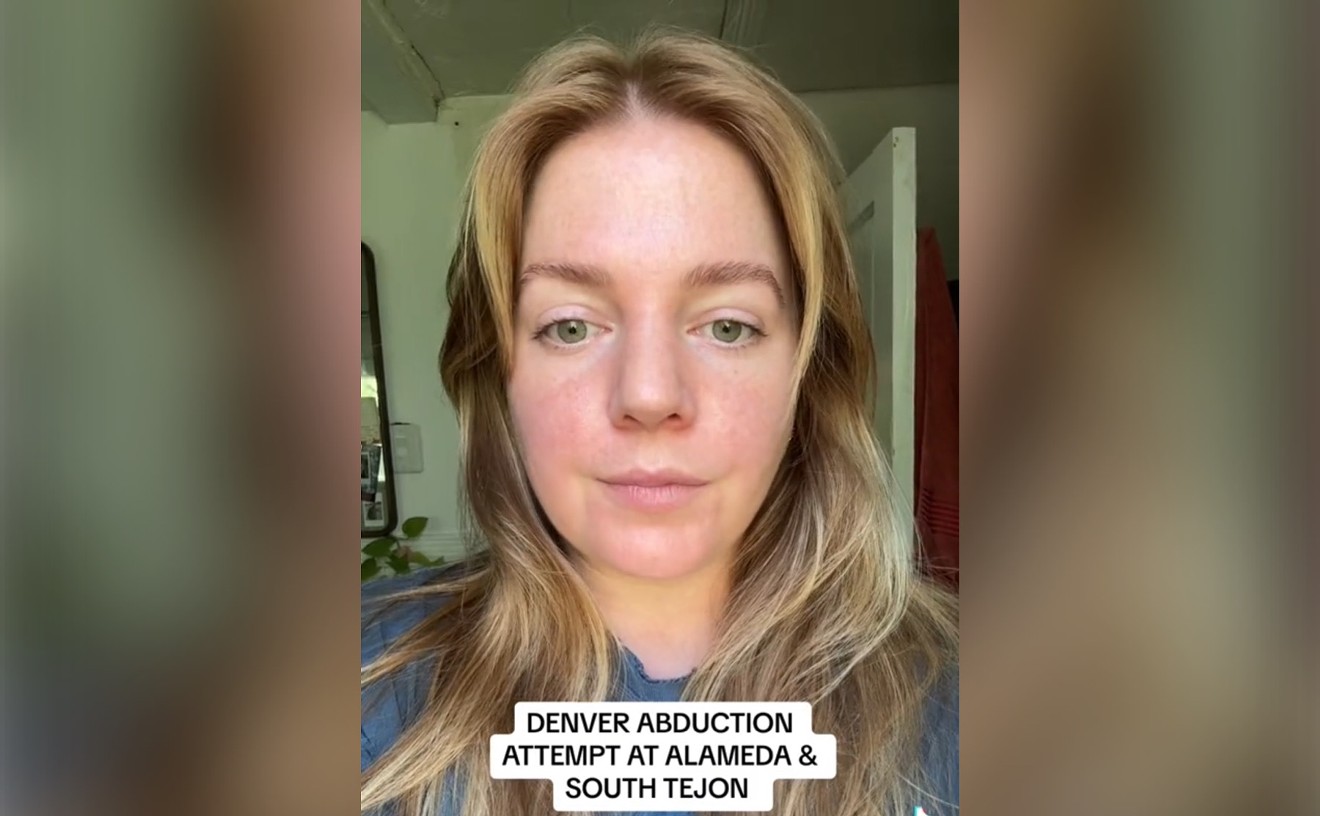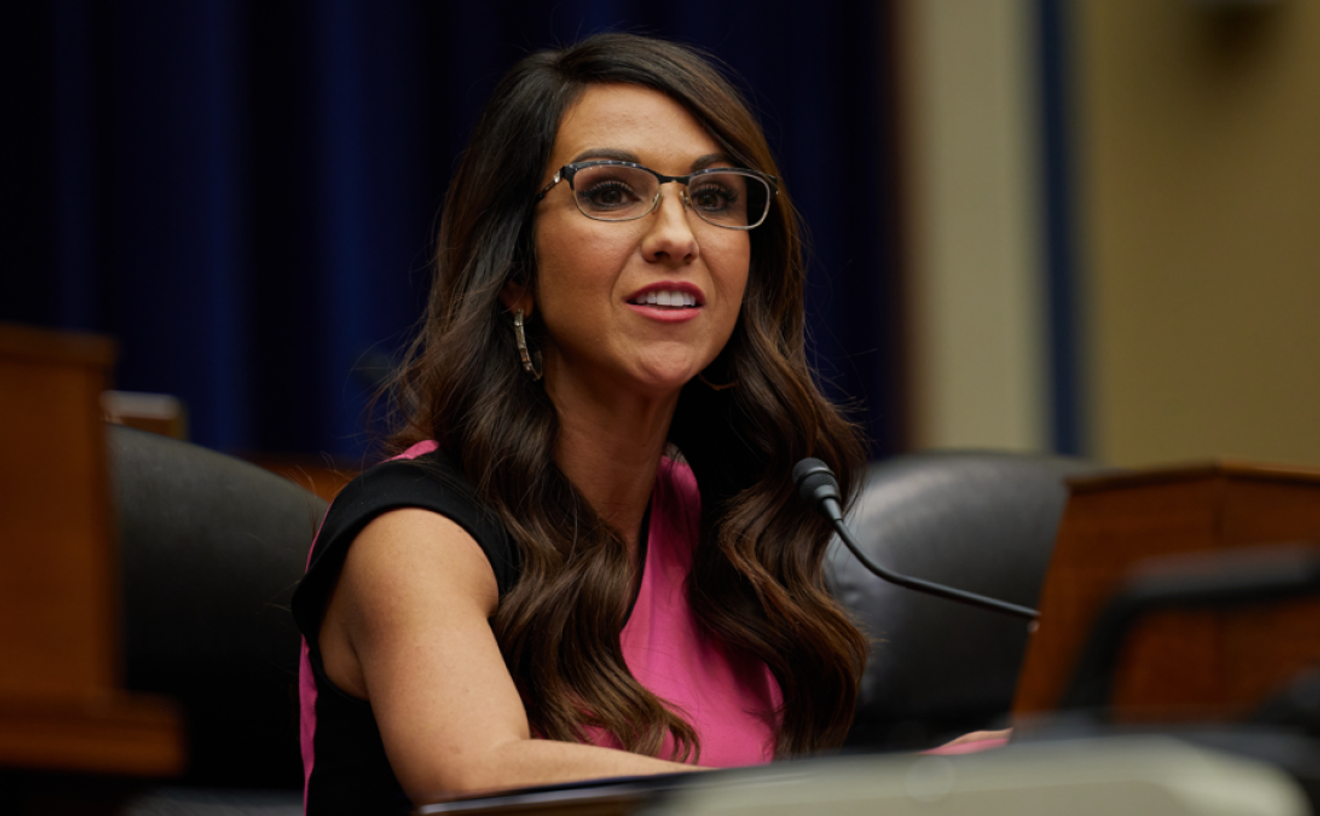The Denver Metro Tenants Union (DMTU) is an advocacy group that helps residents form unions and collectively demand better treatment from landlords. The organization helped tenants of the Felix Apartments, at 11100 East Dartmouth Avenue, unionize in January over a lack of hot water, piles of trash across the 400-unit complex and a mouse infestation — but even though tenant unions help residents organize effectively, they don't hold any legal power over property owners, like a city program should.
Felix residents say they are still dealing with subpar living conditions, and the building still isn't permitted under the city's Residential Rental Property license program. Although DMTU organizer Eida Altman praises Residential Rental Property licensing in general, the current fine structure and a slow embrace by building owners has held back the program.
“It's not like it hasn't done anything, but there are just the worst of the worst that are still out there,” Altman says.
Every rental property in Denver was meant to be licensed by the beginning of the year, and multi-unit properties were supposed to be in compliance by 2023, but only around 21,000 of the estimated 50,000 rental properties in Denver have been licensed so far, according to Denver Department of Excise & Licenses data.
The Denver Department of Public Health & Environment has collected 42 complaints against the Felix since 2022, many of which were spurred by the union. When the DDPHE's enforcement tools didn’t improve conditions, tenants thought the licensing program might help after learning the Felix had yet to even apply.
“We just knew the city could be doing more, and we were trying to build enough pressure to force the Felix to fix things so they can pass the inspection and get a license,” Altman says.
To get a license, landlords must pass an inspection ensuring that there is working hot water, proper electricity and sufficient rodent infestation control along with the other minimum requirements of Denver’s housing code. But the Felix's tenants say there hasn't been much action despite those requirements.
“It has been a lot of yelling into the void, or at the city, and just hoping that people actually listen,” says Blaire Moore, a Felix tenant who didn’t have consistent hot water until January, when the tenants held a protest.
The DDPHE conducted an inspection on the property on April 22 in response to the union's inquiries, visiting each floor to speak with residents about housing issues and any potential code violations. According to the DDPHE, there are currently five active complaint investigations at the Felix, four of which came to attention after the inspection. Amber Campbell, spokesperson for the DDPHE, says management has replaced the boiler system, but intermittent hot water problems continue; the DDPHE fined the Felix $250 on April 8 for that problem.
“Many of the complaints we’ve received at this property have been about dynamic issues,” Campbell says. “For example, hot water not being available at certain times of the day, but when we conduct the investigation it is available. Our proactive inspection last week is helping us better understand outstanding issues and how effectively the property management company is responding to work orders and complaints.”
The notice of violations the DDPHE issued the Felix on April 25 following the proactive inspection found fourteen types of violations for items like egress, electrical fixtures, bathrooms, stormwater drainage, waste removal, insect control and plumbing, with repair time ranging from two days for waste disposal to sixty days for stormwater drainage.
Nearly fifty separate problems were found in units or common areas across the property, according to a CORA request filed by DMTU.
The Felix submitted an application for a rental license on May 9, according to Excise & Licenses spokesperson Eric Escudero, but the city determined that property management must "address areas of deficiencies before any license is issued."
Before filing an application, the Felix had been fined three times by Excise & Licenses for being unlicensed, becoming one of fourteen properties in Denver to have reached a $999 fine for not complying with the licensing program. However, the Felix's ownership switched property management firms at that time, so the city was temporarily unable to take more action.
The Felix is owned by Trion Properties, a company out of California that operates in eight states. It’s currently managed by Apartment Management Consultants LLC, which oversees many properties in Colorado.
“Nothing has materially changed for any of us since they took over,” Moore says of the management transition. “I haven't noticed any particular shift in policy or attitude or fixing of problems.”
Neither Trion nor the property management firm responded to requests for comment.
Despite the lack of progress in their efforts to improve the Felix, Moore and DMTU don't blame the city. They say they understand that a new program may lack the resources needed for universal impact; still. they hope the city will see the Felix as a reason that the Residential Rental Property needs more enforcement.
“It's okay to not have the answer yet, because we want to be there and figure it out with you,” Altman says. “We really need slums to not exist, but it's not these public servants' fault.”
Residential Rental Improvements in Denver
According to Denver City Council member Stacie Gilmore, who was behind the push to enact rental licenses in 2021, the program has been successful, but going from nothing to licensing over 50,000 properties takes time.The Residential Rental Property program is the largest expansion of licensing in Denver history and already has over twice the number of licenses issued compared to the next closest license type — for security guards. As of May 13, 21,326 properties have licenses.
“I'm happy to report that we have more people that are law-abiding and wanting to be in compliance than those who are egregious and not doing what they need to do to ensure the protection of renters who are paying them good, hard-earned cash to have a safe unit,” Gilmore says.
Danica Lee, director of the DDPHE’s Public Health Investigations Division, says the license has increased awareness of the city’s residential health regulations, which were always required but never had a dedicated license.
“It has increased awareness for tenants about our program and their ability to file complaints as well,” Lee says. “That is really meaningful from our point of view."
The rental registration program has also helped DDPHE evaluate buildings more holistically, she adds. In the past, the DDPHE has responded to specific complaints but wasn't tasked with taking a broader view on the health of an entire property, as the license requires.
“We are just now getting enough history under our belt with the new licensing process, and with our new lens of doing some of these proactive property inspections, to better understand how we can use our enforcement tools more effectively when we're looking at a property holistically,” Lee explains.
And the fears people had when the license was instated haven’t come to pass, either, according to Gilmore.
“The conversation in 2020 and 2021 was this is going to make the city unaffordable,” the councilwoman says. “That's not happening. What it's actually doing is it's keeping people housed.”
However, Gilmore says she's exploring areas where quicker enforcement could happen and more ways the license can help increase safety for residents.
“I’m listening to all of the feedback from folks and working with the city agencies behind the scenes to see where we might be able to compel compliance in a more timely way,” she says.
Punishing Landlords in Violation
The state Warranty of Habitability was recently updated by state legislators to be more helpful to tenants by enacting presumptive timelines for repairs. Denver doesn’t have authority on those state issues, so Gilmore has been examining the city’s minimum housing standards and programs for derelict buildings to look for areas where it can expand jurisdiction.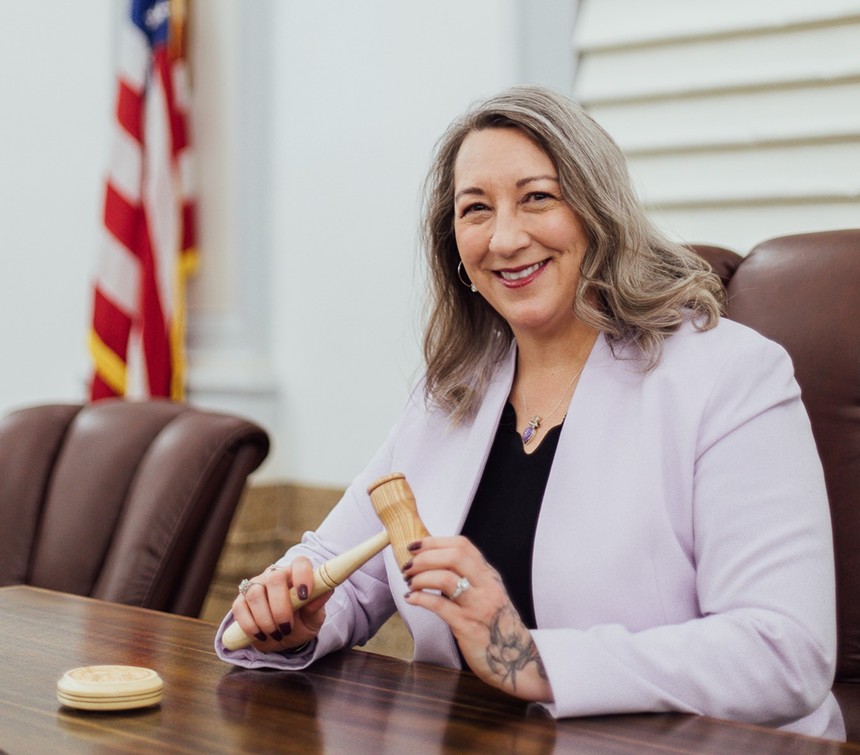
Denver City Councilwoman Stacie Gilmore pushed for the rental standards ordinance.
Courtesy of Stacie Gilmore
Gilmore says she is setting up meetings with those departments and others, like Community Planning and Development and the Denver Police Department, to examine legal options for better compliance.
Denver City Council discussed Residential Rental Property licensing's effectiveness during a presentation with the Safety, Housing, Education & Homelessness committee on April 10.
“I was so happy as a resident of the city, and so it's just really great to see it unfold," Councilmember Sarah Parady said during the April meeting. “Now we get to do the harder part, which is figuring out what's working and figuring out what's not, in a very new system. … I feel like you all should be able to be asking us for what you need in terms of authority, and I think we're all very open to that.”
So far, Excise & Licenses has issued unlicensed properties fines worth a total of over $87,000, with over 2,000 properties receiving warnings, over 320 receiving $150 citations, nearly fifty receiving $500 fines, and fourteen registering $999 fines.
Tenants think the fines aren’t impactful enough, though.
“For them, it's not worth the money to fix the problem when they can just eat the fine and pay significantly less,” Moore says of property owners.
Gilmore says the city increased maximum monetary penalty for local non-compliance to $5,000 after the licensing ordinance was passed, so she’s going to find out if Excise & Licenses can raise fines for the rental property program.
“Sometimes, unfortunately, the only way to ensure compliance is through a robust fine structure, because money talks,” she says. “I'm really interested in, if we do have the ability to go up to that $5,000 fine, why we're not employing that more.”
Licensed properties that are later found to be in violation of Denver's minimum housing standards can have their licenses suspended or revoked, according to the ordinance. Current tenants could stay, but no lease renewals or new leases could be signed until the problems are fixed.
Those provisions don’t apply to properties that haven’t gotten licenses, however, and the city does not want to be that punitive with licensed properties, as it would mean people could lose housing.
“One of the challenges we're coming up against is, what do we do when we have a demonstrated bad actor in the property management space?” Lee says. “Because withholding a license from them or taking away a license, in theory, could eliminate a bunch of housing stock. … Anytime we're talking about displacement of people, we want to be really thoughtful that we've exhausted every other possibility.”
The DDPHE has been talking with Denver City Council members and the mayor’s office about requiring landlords to provide alternate accommodations in the case of displacement due to code violations, Lee says. Along with that proposal, the DDHE and other city departments are working together to explore new ways they can use their authority to collect information and help tenants.
Tenants want to make sure they don’t get lost in those discussions.
“For the rentals that are either complying or on their way to that, that's really huge progress, but for the people who live in the worst of the worst and the biggest of the biggest places, this is not tough enough,” Altman says. “They are also the most vulnerable people, or else they wouldn't be living in slums. These are people with disabilities. These are extremely low-wage workers. These are refugees and immigrants. If this program can't protect those people, it's not meeting its intent.”
Lee and Gilmore both say they’re excited about the rise of tenant unionization in Denver, as unions help them understand the perspectives of the people impacted by their work and can even help them develop better practices.
“I sure wish we would have had tenant unions back when I was trying to get this rental license passed,” Gilmore says. “It's a really good thing that they're mobilizing more and that they're a stakeholder and they're partners with us.”

